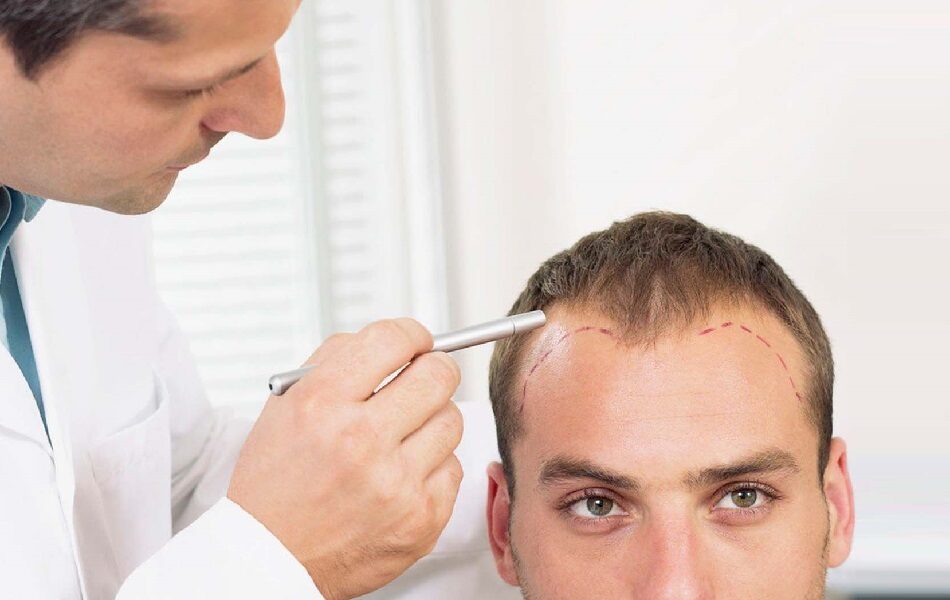Hair loss is a common concern that affects both men and women, but the causes and treatment approaches can vary significantly between the two genders. Understanding the unique considerations in medical trichology for men and women is essential for accurate diagnosis and effective treatment. In this article, we will explore the differences in hair loss patterns, underlying causes, and treatment options for men and women. The IICAD Academy offers specialized training in medical trichology, equipping professionals with the knowledge and skills to address hair loss in a comprehensive manner.
Understanding Hair Loss
Before delving into the gender-specific considerations, let’s gain a general understanding of hair loss.
- Hair Loss in Men
Hair loss in men is commonly associated with male pattern baldness or androgenetic alopecia. It typically follows a predictable pattern, starting with a receding hairline and thinning on the crown. Hormonal factors, particularly dihydrotestosterone (DHT), play a significant role in this type of hair loss.
- Hair Loss in Women
Hair loss in women can have various underlying causes, including hormonal imbalances, genetics, certain medical conditions, and lifestyle factors. Unlike men, women often experience diffuse hair thinning throughout the scalp, rather than specific patterned baldness. Female pattern hair loss is one of the common forms of hair loss in women.
Medical Trichology: A Comprehensive Approach
Medical trichology focuses on diagnosing and treating hair and scalp disorders. It takes a holistic approach, considering various factors that contribute to hair loss. Here are some key aspects:
- Diagnosis and Evaluation
Accurate diagnosis is crucial in medical trichology. A thorough evaluation of the patient’s medical history, lifestyle, scalp condition, and hair loss pattern help determine the underlying causes and appropriate treatment options.
- Treatment Options
Medical trichology offers a range of treatment options tailored to individual needs. These may include topical medications, oral medications, low-level laser therapy, platelet-rich plasma (PRP) therapy, hair transplantation, and scalp micropigmentation. The choice of treatment depends on the specific cause and severity of hair loss.
- Lifestyle and Nutritional Factors
In addition to medical interventions, addressing lifestyle and nutritional factors is essential for optimal hair health. A balanced diet, stress management, regular exercise, and proper hair care practices can contribute to maintaining healthy hair growth.
Unique Considerations for Men and Women
Hair loss in men and women has distinct characteristics and considerations. Understanding these differences helps tailor treatment approaches accordingly.
- Underlying Causes
While male pattern baldness is primarily influenced by genetics and hormonal factors, female hair loss can be multifactorial. Hormonal imbalances, such as polycystic ovary syndrome (PCOS), thyroid disorders, and hormonal changes related to pregnancy or menopause, can contribute to hair loss in women.
- Pattern and Distribution of Hair Loss
Men typically experience a receding hairline and thinning at the crown, whereas women may notice overall thinning of hair on the scalp. Hair loss in women often occurs in a diffuse pattern, making diagnosis and treatment more challenging.
- Hormonal Factors
Hormonal imbalances play a significant role in both male and female hair loss. Understanding the hormonal factors specific to each gender helps in determining the appropriate treatment approach.
- Treatment Approaches
While some treatment options, such as minoxidil and finasteride, can be used for both men and women, there may be variations in dosage and duration. Hormone-regulating medications or topical treatments tailored to hormonal imbalances may be more relevant for women.
The Role of IICAD Academy in Medical Trichology
The IICAD Academy is committed to providing comprehensive education and training in medical trichology. Through their courses and resources, they empower professionals to accurately diagnose hair loss, understand gender-specific considerations, and implement effective treatment strategies. The academy’s expertise contributes to the advancement of medical trichology and ensures quality care for individuals experiencing hair loss.
Summary:
Hair loss in men and women requires a nuanced understanding and tailored approaches. Medical trichology offers a comprehensive approach to diagnose and treat hair loss, taking into account the unique considerations for each gender. By addressing underlying causes, utilizing appropriate treatment options, and considering hormonal factors, individuals can achieve positive outcomes in their hair restoration journey. The IICAD Academy, based in Bangalore, plays a crucial role in advancing the field of medical trichology. Through their specialized training and education, the academy equips professionals with the knowledge and skills necessary to address hair loss in a comprehensive manner. By providing thorough evaluations, considering hormonal factors, and offering a range of tailored treatment options, professionals trained at the IICAD Academy can help individuals achieve positive outcomes in their hair restoration journey.

